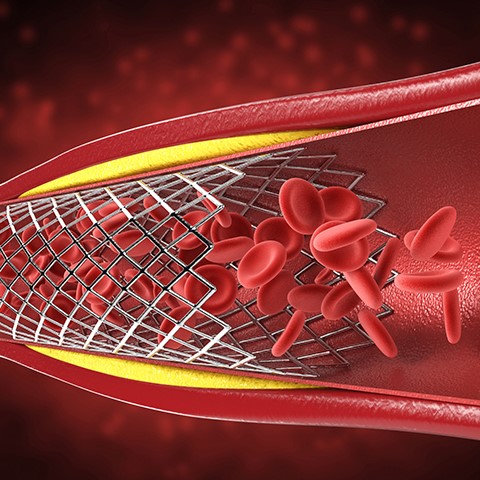Angiogram
& Angioplasty.
Increase your life expectancy by having zero artery blockages and a healthily beating heart.
Dr Jagadesh takes complete care that the patient is comfortable and knows what they will be experiencing throughout the treatment process.
About Angiogram
During an angiogram, a cardiac specialist uses ‘contrast medium’ a special dye injected via a catheter into the artery of the arm or groin. The catheter inside shows photographs of the blood vessels that allows the doctor to understand potentials blood vessels issues. X-rays are recorded to get help in formulating the next course of treatment.
Angiography is a painless and safe process completed within 30 minutes to 2 hours. Nevertheless, there may arise a few risks/after effects like soreness or bruising for seven to 10 days. Other rare complications involve dizziness, stroke, shortness of breath, kidney damage because of internal bleeding or serious allergy to the dye.
However, these temporary side effects are highly rare and can be treated easily.

Symptoms leading to angiogram

Certain health symptoms lead to undergoing an angiogram. Some of such symptoms include:
Chest pain
Double vision
Shortness of breath
Unexplained pain in jaw, arm or neck
Severe headache
Severe dizziness
Have had a heart attack or stroke
Have a blood clot or blockage
Have failed several stress tests
Have a brain tumour
About Angioplasty
During the process, a catheter is inserted through the skin at the location of the blocked artery. The small balloon at the end of the cardiac cath (or catheter) is inflated to clear the blocked vessel. It brings the blocked artery back into its original shape and size, pushing the blockage away.
Based on the location of the blockage, there are different types of angioplasty such as coronary angioplasty, cerebral angioplasty, renal artery angioplasty, balloon pulmonary angioplasty, Femoral artery angioplasty (or PTA), and carotid artery angioplasty.
If you have multiple blocked blood vessels (arteries), angioplasty is not an ideal option for treating the issue. In that case, cardiologists suggest open-heart surgery.
Note: You may also undergo laser angioplasty – a process of removing blockage with laser radiation.

Regular shortness of breath
Regular chest pain
Have peripheral artery disease, carotid artery disease, atherosclerosis, or coronary artery disease
Have more than 50% of blockage in one of the main arteries
Have more than 70% blockage in a branching blood vessel
Symptoms leading to angioplasty

After the procedure
You can book follow up online appointments with us any day.
Let’s start a conversation…
We understand the importance of listening.
Feel free to contact us
